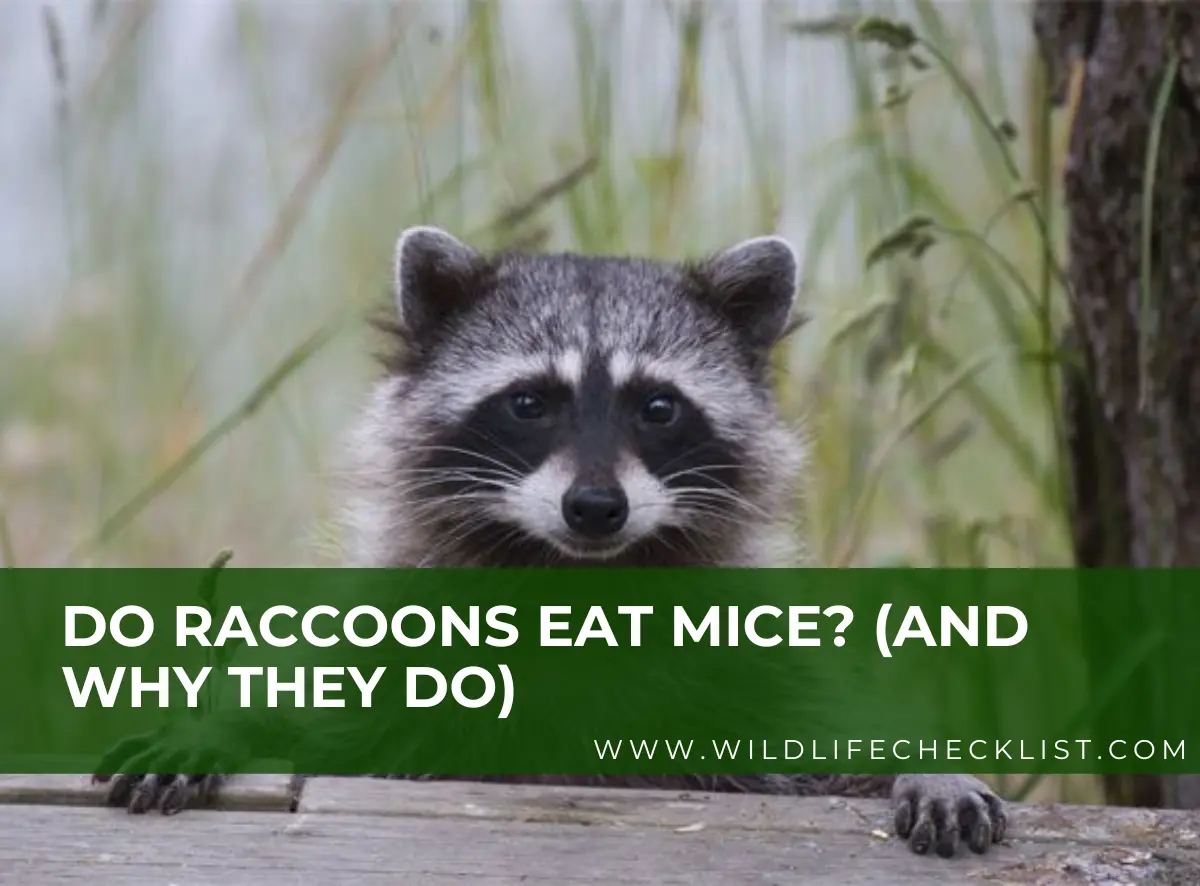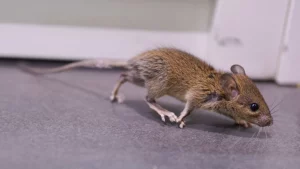Do Raccoons Eat Mice? (And Why They Do)

Raccoons are amazing creatures that can feed on anything, even rodents. There are different rodents that raccoons can eat, for example, rats, mice, and so on.
Mice are one of the rodents that raccoons feed on; in fact, mice are a common part of the raccoon’s diet, especially in urban areas where they are in excess.
Mice are very smart animals, making it hard for Raccoons to catch them and rare for them to be seen near raccoons. Occasionally, raccoons don’t eat mice immediately; they kill them. They prefer to take them to a secret place far away from other animals, raccoons, and onlookers.
In addition to raccoons eating mice, they eat rats, nuts, rabbits, and squirrels. They are good at foraging for food in trash, garbage cans, and dumpsters, which is always a disturbance to human beings.
Contents
Why Raccoons Eat Mice

As a wild animal that can eat both flesh and vegetables, there are different reasons why raccoons will want to eat mice. A mouse is a great source of protein for raccoons, as they are opportunistic feeders; they also need a balanced diet of either plants or animals.
Also, mice provide raccoons with essential amino acids, vitamins, and other nutrients. The protein obtained from the mice can help raccoons build healthy muscles, giving them energy for daily activities.
Also, mice are easy to catch by raccoons, and because they are always found close to places, raccoons will be in, like barns, trash or garbage cans, crop fields, and so on.
Raccoons use their dexterous front paws and sharp claws to reach into small spaces and pull out mice, and because of their activeness at night, it is easy for them to prey on mice.
Raccoons are intelligent, curious, and smart animals who love to explore and use mice to satisfy their hunting instinct. Stalking a mouse helps raccoons get occupied and allows them to practice their foraging skills.
Do Mice Attract Raccoons?
Mostly, mice will attract raccoons. For instance, if you stay in an area where snakes exist, the slithering beasts can increase on your land or in your home when you have a rodent infestation.
Rodents are always known to attract a wide range of other animals, especially big ones that can be classified as predators and serve as food.
Raccoons will likely not hunt after mice as they are too lazy to do so. But they prefer to eat dead mice if they find one. But raccoons may not be the best for reducing rodent invasion in your house.
Do Raccoons Keep Mice Away?
Well, raccoons can keep mice away from your house, but that may not be a raccoon’s work. It is a yes because if the mice know that raccoons are in a place, they will want to run for their lives, not to become prey.
On the other hand, as much as raccoons can feed on rodents like mice, it is not something they do instantly, so a raccoon will only feed on mice when food is scarce and there’s no other alternative food source. Only if raccoons feed on mice every time can the population be reduced. Because of these reasons, raccoons can keep mice away and, simultaneously, cannot.
Can Raccoons Control A Mouse Infestation?
Mouse infestation can be a great plague in so many homes and properties. As much as you can use traps and rodenticides, some still question whether raccoons can control mouse infestation.
Raccoons sometimes hunt and feed on mice as part of their omnivorous diet. If they have the opportunity, raccoons will surely hunt for rodents if they find one in the fields, forests, barns, attics, and other buildings.
With their paws and claws, they will gracefully catch any mice they find around them and feed on them. In a nutshell, as far as raccoons can hunt for mice, they can’t get rid of mouse infestation on their own, and here are some reasons why they can fully stop the infestation.
Access: raccoons are known to live in the wild and have limited ability to enter sealed buildings and rooms where mice may be staying. Mice can breed rapidly, especially in the inaccessible wall that is void and cluttered areas raccoons can not reach.
Persistence: because a mouse is one of the raccoon food sources, it can kill many of them but not hunt down to the last mouse. Mice can continue breeding and perpetuate the infestation even after raccoons move on.
Deterrents: homeowners often discourage raccoons from walking about their space once they spot them. Harassing and sending away raccoons and blocking their building access will prevent sustained hunting pressure on mice.
Daytime Limitations: as nocturnal or night creatures, raccoons only hunt for mice at night. Because of that, mice can safely hide and breed undisturbed during the daytime hours when raccoons are resting or inactive.
Raccoons eagerly eat mice and somehow can provide control over them, but they don’t and can’t cause a full eradication of the animals. Homeowners should also find ways to eradicate mice using traps and rodenticides, having proper sanitation, take sensible precautions, keeping pet foods away, and blocking all holes and openings, amongst many other things.
What Are The Risks Of Raccoons Eating Mice?
Rodents like mice can be carriers of different diseases, which can cause different health challenges to raccoons. These are some health dangers raccoons can face when they prey on mice.
Disease Transmission: mice can be carriers of infectious diseases transmitted through their urine, feces, and bites. These include salmonellosis, hantavirus, leptospirosis, and lymphocytic choriomeningitis. If a raccoon feeds on infected mice or comes in contact with their excrement, it can be infected by such diseases.
Internal parasites: mice are a major host of harmful internal parasites like roundworms, giardia, coccidia, and tapeworms. If a raccoon feeds on a mouse with these parasites, it will also be at risk of health danger through bioaccumulation up the food chain. These parasites tend to cause organ damage and gastrointestinal illness.
Pesticide Poisoning: due to the invasion of mice, a homeowner can use poison to reduce their population. Chemicals, such as rodenticides and insecticides, can accumulate some toxic levels in the rodents. If a raccoon decides to feed on such mice, it is writing a letter to health hazards that can affect it and even lead to death.
Injuries: running or hunting after a mouse can lead to the injury of a raccoon. We established that mice are smart and fast animals, which can be challenging to get at once. Also, they can bite, which can lead to some form of wound, which can be an open cheque to different infections.
As much as there are so many healthy benefits a raccoon can get from eating a mouse, it can also pose a great health danger if they feed on sick or infected mice, which can also be dangerous to human beings. So, the best you can do is to find a way to stop the invasion of both raccoons and mice.




